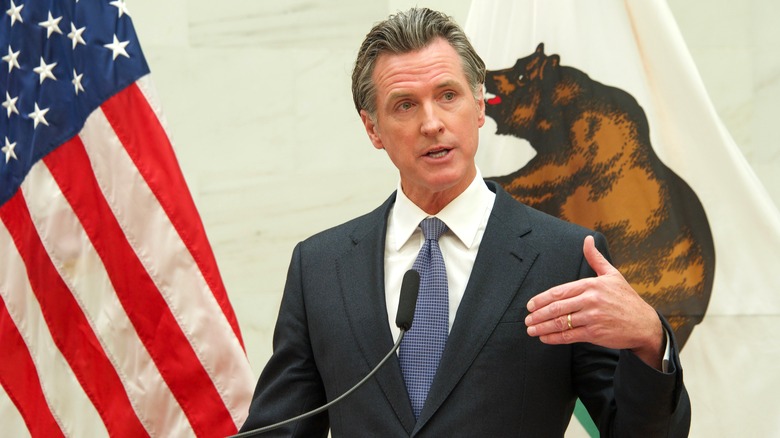California Fast Food Workers Rejoice As The State Finally Increases Its Minimum Wage
California Governor Gavin Newsom signed a new law on September 28 that raises the minimum wage for fast food workers to $20 per hour. The law, Assembly Bill 1228, applies to employees of restaurant chains that have at least 60 locations in California, with the exception of restaurants that make and sell bread as a standalone menu item, such as Panera Bread. The pay increase will take effect on April 1, 2024; when it does, California's half-million fast food workers will have the highest minimum wage in the United States.
Until the new law goes into effect, fast food restaurants in California will continue to offer a minimum wage of $16.60 per hour. The state's minimum wage for workers in other industries holds for now at $15.50, the second-highest in the nation, falling 24 cents below Washington. However, even with the impending wage increases in the fast food industry, California's minimum wage workers will continue to earn less than the state's living wage, which is $21.24 for adults with no children, according to estimates from MIT.
Higher wages aren't the only thing to come out of the new law. AB 1228 also establishes a new fast food council for California. The council will have nine members: two representatives of the fast food industry, two franchisees, two employees, a pair of employee advocates, and one unaffiliated member of the public who will chair the council.
A new fast food council could enact further wage increases
The nine-member council established by AB 1228 will have the power to approve minimum wage hikes for California's fast food workers annually from 2025 through 2029. Each year, the council can increase wages by either 3.5% or by the average change in the consumer price index that year, whichever is lower. The council will also work with the state to set standards for other working conditions, such as employee hours.
Newsom's signature seemingly curbed a looming battle between the fast food industry and labor unions in the state. Last year, the state passed a different bill, AB 257 (also known as the FAST Act), which established a 10-person council with similar powers, including the ability to raise wages to $22 per hour over time. The fast food industry was set to fight this through a referendum on California's next ballot. However, the new minimum wage law overrides AB 257, and the industry has agreed to withdraw its referendum.
In exchange for higher wages and the new fast food council model, labor union negotiators agreed to pause their efforts to enact a new law making fast food companies liable for the actions of their franchisees, namely concerning labor violations. The bill also prevents localities from increasing fast food worker wages beyond the state-approved level.

